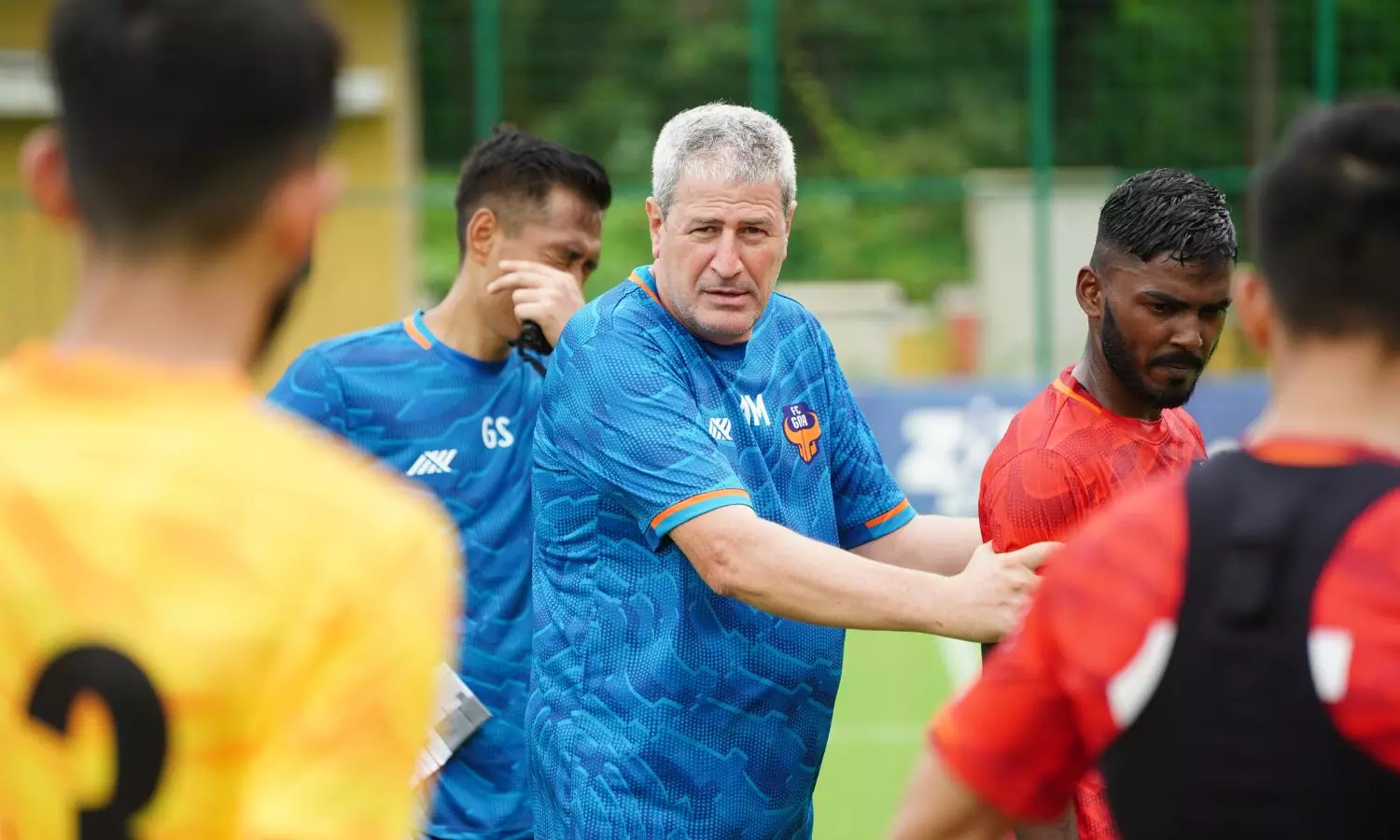Football
What does the appointment of Manolo Marquez mean to Indian football?
FC Goa coach Manolo Marquez is appointed as the new Indian coach: Eric Benny decodes what does it mean to the Indian football.

Manolo Marquez, Head Coach, FC Goa in a training session with his team. (Photo credit: Durand Cup)
The recent appointment of Manolo Marquez as the head coach of the Indian national football team marks a significant milestone for Indian football.
Marquez, who currently manages FC Goa, brings a wealth of experience and a deep understanding of the Indian football landscape to his new role.
Marquez's coaching career is well-documented, with stints at various Spanish clubs, including Las Palmas in La Liga and several teams in the lower divisions.
His tactical acumen and ability to adapt have been honed through years of navigating the complex dynamics of European football. This experience is expected to translate well into the Indian context, where football is growing rapidly but still faces numerous challenges.
Having been in India since 2020, Marquez has coached two Indian Super League (ISL) clubs—Hyderabad FC and FC Goa. His tenure at Hyderabad FC was particularly notable, culminating in an ISL Cup victory in the 2021-22 season.
Many national team players in recent years have emerged from his Hyderabad FC squad, underscoring his ability to develop and nurture talent.
Marquez’s knowledge of Indian football is extensive, not just about the players but also the overall system and the actual state of the nation's football prowess.
This familiarity with the local football scene is crucial for any national team coach, as it allows for more informed decisions and strategies.
One of Marquez’s standout qualities is his honesty and outspokenness. After five years under Igor Stimac, India deserves a coach who speaks the reality, and that’s exactly what Marquez offers.
His candidness will likely foster a culture of transparency and accountability within the team, which can be beneficial for long-term growth.
Tactically, Marquez brings a well-defined setup that isn’t strictly reliant on the traditional tiki-taka style. He understands that Indian players may not yet be ready to execute such a system flawlessly.
Instead, his teams show an increased technical level and adaptability, with wide players—both fullbacks and wingers—thriving under his guidance. Players like Nikhil Poojary, Ashish Rai, Jay Gupta, and Yasir have all shown significant improvement under Marquez’s coaching.
Marquez’s ability to adapt to game situations is another critical asset. He employs a risk-managing style of play, avoiding both over-commitment and undervaluing situations.
This pragmatic approach could serve the Indian team well, especially in high-stakes matches.
Manolo Marquez’s dual role as head coach of both FC Goa and the Indian national team adds a significant layer of stress and complexity to his responsibilities.
Balancing the demands of club and country requires meticulous planning and exceptional time management. He must juggle the immediate pressures of league matches, training sessions, and player management at FC Goa with the broader strategic goals and international commitments of the national team.
This dual burden not only tests his adaptability and endurance but also demands that he maintain high-performance levels across both roles. Ensuring that he meets the expectations of club fans while steering the national team toward long-term success will be a formidable challenge, one that underscores the immense responsibility placed on his shoulders.
However, it’s worth noting that Marquez has rarely used an Indian striker in his setups over the past four years. This raises questions about how he will structure the national team’s attack.
It will be interesting to see how he adapts his tactics to make the best use of the available talent, especially now that Sunil Chhetri has retired.
Manolo Marquez’s extensive experience, deep knowledge of Indian football, and pragmatic approach make him well-suited to lead India to new heights in the footballing world.
The coming years will reveal the full impact of his coaching philosophy on the national team.
